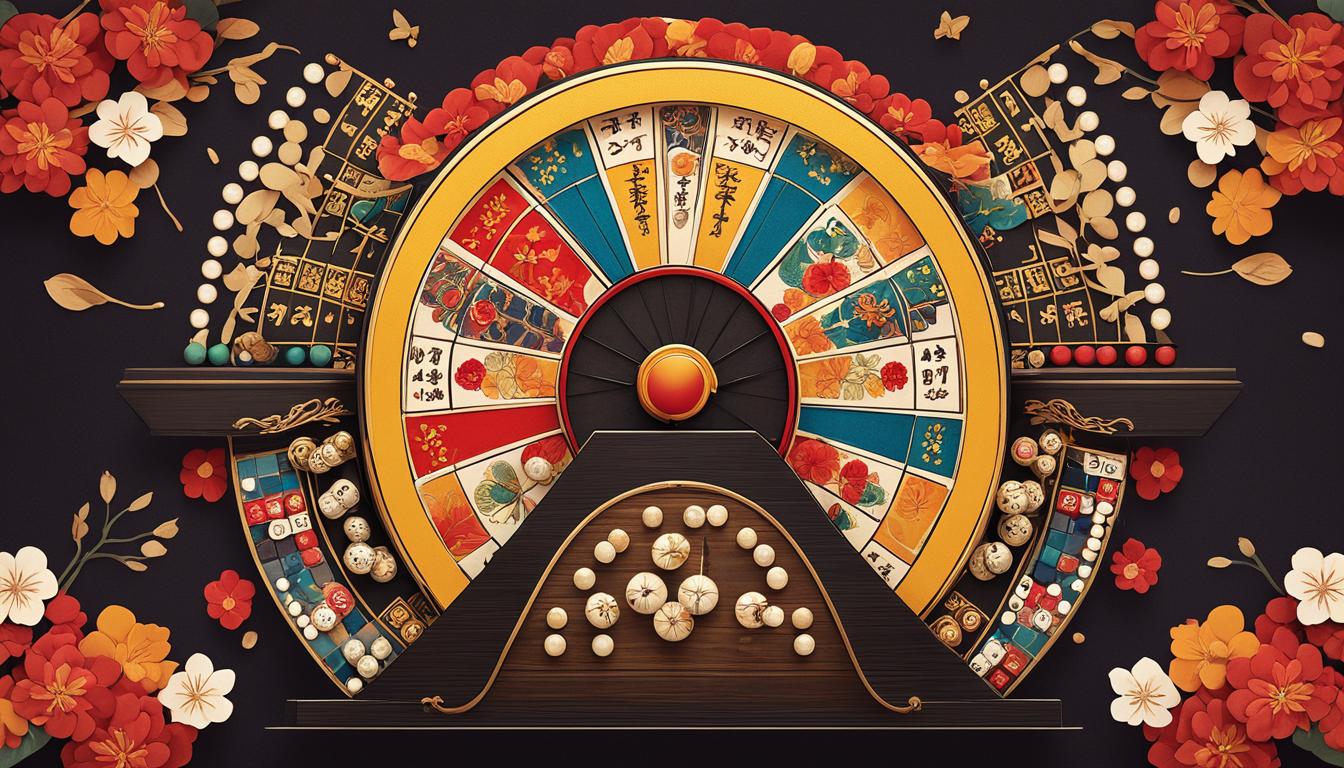If you’re a fan of audiobooks and looking for a captivating listening experience, look no further than “Pachinko” by Min Jin Lee. In this in-depth review, we explore the immersive experience of listening to the audiobook and examine its powerful portrayal of love and resilience. From its compelling plot to well-developed characters, “Pachinko” is a must-read for anyone seeking a thought-provoking and emotional journey.
Introduction to “Pachinko”
Min Jin Lee’s acclaimed novel, “Pachinko,” is a poignant portrayal of the Korean diaspora and the struggles faced by multiple generations of a Korean family. Lee, a Korean-American author, weaves a compelling narrative that explores the human condition with heart-wrenching honesty.
The novel traces the story of a family across four generations as they grapple with displacement, discrimination, and the challenges of living in a foreign land. Lee’s writing style is evocative and lyrical, creating an immersive experience that draws the reader into the heart of the story.
“Pachinko” has been widely recognized for its cultural significance and literary merit, receiving accolades such as the National Book Award finalist and New York Times Notable Book of the Year.
Main Themes
The central themes of “Pachinko” revolve around the Korean diaspora and the experiences of immigrants living in Japan. Lee explores the complexities of identity and culture, as well as the struggles of assimilation and discrimination that many immigrants face. The novel also unearths themes of love, sacrifice, resilience, and family ties, drawing readers into the emotional journey of the characters.
Author Background
Min Jin Lee is a Korean-American writer who was born in Seoul, South Korea, and raised in the United States. She is the author of two novels, including “Pachinko,” as well as numerous essays and articles. Lee’s work often revolves around themes of family, identity, and culture, drawing on her own experiences as a Korean immigrant to the United States. Her writing has been widely praised for its emotional depth, lyrical prose, and vivid portrayal of characters.
Plot Overview
“Pachinko” is a sweeping family saga that follows the lives of several generations of a Korean family living in Japan. The story begins in the early 1900s in Korea, where the central character, Sunja, is born and raised. When Sunja falls pregnant out of wedlock, she is forced to marry a kind but sickly minister, Isak, and moves to Japan with him. In Japan, Sunja and her family face discrimination and challenging living conditions as they try to make a life for themselves in a new country.
The novel spans several decades and focuses on the lives of Sunja’s family members as they struggle to build a new life in Japan amidst the chaos of World War II and beyond. The family members face significant challenges including discrimination and cultural clashes, all while trying to keep their traditions and heritage alive.
Throughout the novel, the author, Min Jin Lee, weaves a story that is both heartbreaking and hopeful, exploring themes such as love, loss, sacrifice, and the resilience of the human spirit. Despite the many challenges faced by the family, they remain loyal to one another and continue to persevere, leaving the reader with a sense of hope and admiration for their enduring spirit.
The Multigenerational Story
“Pachinko” is a multigenerational story that explores the lives of several characters across several decades. The narrative is character-driven, with each family member experiencing their own challenges and hardships. Despite the vast scope of the novel, Lee manages to keep the reader engaged by creating nuanced and complex characters that feel incredibly real.
The Importance of Tradition
Throughout “Pachinko,” Lee underscores the importance of tradition and heritage, as Sunja’s family tries to maintain their Korean identity in the face of a rapidly changing world. Despite the challenges and discrimination they face, the characters take pride in their culture, language, and traditions, providing a rich and nuanced portrayal of the Korean diaspora.
The Struggle for Belonging
“Pachinko” explores the struggle for belonging that many immigrants face as they try to make a new life for themselves in a different country. The novel provides a poignant portrayal of the challenges faced by a marginalized community, exploring themes of discrimination and cultural clashes.
| Strengths | Challenges |
|---|---|
| The characters are richly drawn and feel incredibly real. | The novel covers a vast period of history, which can be overwhelming for some readers. |
| The story explores themes such as love, loss, sacrifice, and resilience, which are both universal and yet specific to the Korean diaspora. | Some readers may struggle with the portrayal of discrimination and racism in the novel. |
| The multigenerational story provides an in-depth exploration of several characters across multiple decades. | The novel features a large cast of characters, which can make it challenging to keep track of everyone. |
Character Analysis
One of the greatest strengths of “Pachinko” lies in its well-developed and complex characters, which offer a glimpse into the intricacies of the Korean diaspora and the challenges faced by multiple generations. The main characters in “Pachinko” are relatable protagonists with human flaws that make them feel real and engaging.
Sunja, the novel’s main character, is a resilient and determined woman who faces numerous obstacles throughout her life. Her strength in the face of adversity is inspiring, and her motherly love and sacrifices for her family are heart-wrenching. Noa, her son, struggles with his identity and his relationship with his heritage, leading to a complex and at times tumultuous journey throughout the book. Kyunghee, Sunja’s sister-in-law, is another fascinating character, with her ambition and inner conflicts adding depth to the story.
“She thought about her life and how lost she had always felt, how she had buried herself under layers of protective conventions and why it was much easier to follow others’ demands than to ask anything of herself.”
The audiobook also masterfully brings these characters to life through stellar narration and character voices that complement the personalities of each individual in the story. The character development in “Pachinko” is both subtle and profound, as each character undergoes transformations and growth over the course of the narrative.
An Overview of the Main Characters
| Character Name | Description |
|---|---|
| Sunja | Main protagonist of the book; a resilient woman who faces numerous challenges and heartbreaks, but remains determined to provide for her family. |
| Noa | Sunja’s first son, struggles with his identity and relationship with his Korean heritage. |
| Kyunghee | Sunja’s sister-in-law, ambitious and driven to succeed, but grapples with inner conflicts. |
| Hansu | A wealthy and powerful Korean man who has a romantic affair with Sunja and later becomes Noa’s father. |
| Mozasu | Sunja’s husband and the father of her second son, a kind and hardworking man who runs a boarding house in Yokohama. |
Each character in “Pachinko” is a multi-layered and complex individual with their own unique experiences and struggles. The novel’s exploration of their strengths, vulnerabilities, and relatable qualities makes it an emotionally impactful and thought-provoking audiobook, one that invites listeners to reflect on their own personal journeys and the universal experiences of love, loss, and resilience.
Historical and Cultural Context
“Pachinko” by Min Jin Lee depicts the Korean diaspora, but set against the backdrop of the Japanese colonization of Korea. This historical context and the resulting cultural clash and discrimination experienced by the characters shape their lives throughout the novel.
Lee does not shy away from the grim realities of Korean life during colonization, with vivid descriptions of the hardships faced on a daily basis. The novel takes readers on a historical journey, showcasing the discrimination and prejudice that Koreans faced in Japan and the difficulties of being part of a minority in a foreign land.
However, Lee also masterfully portrays the resilience and determination of the Korean community in the face of adversity. The characters in “Pachinko” strive to build a better life for themselves and their families, navigating cultural differences and persisting through difficult circumstances.
The historical and cultural context of “Pachinko” resonates with readers, as it highlights the ongoing struggle against discrimination and reinforces the importance of unity and resilience.
Writing Style and Narrative Technique
Min Jin Lee’s writing style in “Pachinko” is characterized by lyrical prose and a multi-perspective storytelling technique. Throughout the audiobook, Lee employs vivid imagery and language that paints a rich and complex portrait of the Korean diaspora and the challenges faced by its characters. Her lyrical prose draws the reader in and immerses them in the world of the novel, making for a mesmerizing listening experience.
The multi-perspective storytelling technique used by Lee is particularly effective. With each chapter, the story is told from different characters’ perspectives, offering unique insights into their experiences and emotions. By centering each character’s perspective, Lee allows the listener to gain a deeper understanding of their motivations and struggles. The result is a richly woven tapestry of personalities and experiences that seamlessly come together to create a powerful narrative.
Themes and Symbolism
“Pachinko” is a novel that explores profound themes of love, sacrifice, and resilience in the face of adversity. Throughout the book, readers are introduced to relatable characters who face challenges with courage and fortitude, inspiring empathy and admiration. The novel’s exploration of these themes makes it a thought-provoking and emotionally resonant read.
One symbol of particular significance in the novel is the pachinko machine. This machine, which serves as a recurring motif in the book, represents the characters’ perseverance and persistence in the face of obstacles. Despite the odds stacked against them, the characters continuously return to the pachinko machine, hoping for a better outcome. The pachinko machine thus acts as a powerful symbol of resilience and determination in the face of adversity.
The novel also explores the various forms of love and sacrifice that characters endure throughout their lives. From romantic love to familial love and sacrifice, the characters in “Pachinko” face numerous challenges and hardships that test their resolve and require them to make difficult choices. These themes of love and sacrifice are deeply moving and underscore the resilience and strength of the human spirit in the face of adversity.
Overall, the themes and symbolism in “Pachinko” provide a rich and meaningful exploration of the human experience, making it a captivating and thought-provoking novel that will stay with readers long after they finish it.
Audiobook Narration
The audiobook version of “Pachinko” offers a captivating listening experience that brings the novel to life. The performance is skillfully done, and the narrator’s voice is engaging and compelling. The tone and pace of the book are perfectly suited to the narrative, immersing the listener in the story and providing a deeply emotional listening experience.
The narration style is impressive, as the narrator capably brings to life each character’s voice, from gruff and stoic patriarchs to the gentle cadence of female characters. The effectiveness of the narrator’s portrayal of various characters is a testament to their range and skill in bringing a wide array of characters to life. The story’s gripping and heartwarming moments, as well as its darker and more emotional themes, are all conveyed with authenticity and nuance by the narrator, making the audiobook narration of “Pachinko” a true masterpiece.
The Importance of Audiobook Performance
Audiobook performance, narration style, and character voices are all critical elements that can significantly affect the audiobook’s overall quality. Good audiobook performance enhances the listener’s immersion in the story, making it more engaging and memorable. The right narration style can breathe fresh life into the novel, while the narrator’s ability to embody each character’s voice can transport the listener to the world within the book.
“Pachinko” stands out for its immersive audiobook performance that skillfully blends a range of narration styles to produce a gripping listening experience that will stay with the listener long after the story’s end.
Emotional Impact
Listening to “Pachinko” is an emotional journey full of heartfelt moments that leave a lasting impression on the listener. From the tender moments between characters to the heartbreaking struggles they face, the audiobook evokes various emotions that resonate long after it ends.
The audiobook has received an overwhelmingly positive reader response, with many praising its ability to move them to tears. One reader writes, “I was so invested in the characters that I felt their pain and triumphs as if they were my own. ‘Pachinko’ is a truly beautiful and emotional experience.”
It’s not just the strong character development that tugs at the heartstrings, however–the historical and cultural context of the book adds an extra layer of emotional depth. The discrimination and struggles faced by the characters in “Pachinko” highlight the resilience and strength of the human spirit, making their triumphs all the more powerful.
“Pachinko” is a masterclass in storytelling, skillfully blending history, culture, and personal struggles into a moving and memorable audiobook experience.
Critical Reception and Awards
The undeniable literary prowess of “Pachinko” has garnered many positive book reviews and accolades since its publication in 2017. The novel was a finalist for the National Book Award for Fiction and was named one of the New York Times’ Top Ten Books of the Year in 2017. The audiobook was also a finalist for the 2018 Audie Award for Fiction.
Some of the reviews of “Pachinko” include:
“Brilliantly crafted, engrossing, and memorable. Lee’s immense storytelling talents are on full display here… simply mesmerizing.”
– NPR
“Leaves the reader feeling more than a little devastated, but it’s also a novel filled with great beauty and hope.”
– The Guardian
In addition to critical acclaim, “Pachinko” has received recognition for its cultural significance and contribution to Korean literature. Min Jin Lee was named one of Foreign Policy’s 2018 Global Thinkers for her exploration of the Korean diaspora, and “Pachinko” was selected as a finalist for the 2019 Aspen Words Literary Prize.
In sum, “Pachinko” has received extensive literary recognition for its powerful storytelling, well-developed characters, and cultural commentary, making it a must-read audiobook for fans of historical fiction and anyone looking for a deeply moving and thought-provoking listening experience.
Cultural Significance
Min Jin Lee’s “Pachinko” is a significant contribution to Korean literature, with its vivid depiction of the Korean diaspora and engaging exploration of the complexities of multiple generations. The novel has gained international acclaim, cementing its importance in the literary world.
The cultural representation of the Korean experience in “Pachinko” adds to the diversification of literature, providing insights into a rich and distinct culture that is often overlooked in mainstream media. Through the audiobook format, listeners are transported into the world of “Pachinko” and are exposed to its cultural nuances and historical context.
The book’s literary recognition is a testimony to its relevance and resonance with audiences worldwide. It was a finalist for the National Book Award for fiction and was named one of The New York Times’ ten best books of the year in 2017. Additionally, it won the Medici Book Club Prize and the Andrew Carnegie Medal for Excellence in Fiction, among other accolades.
The impact of “Pachinko” on the literary world is undeniable, opening doors for other works that explore cultures outside of the Western canon. Its representation and popularity demonstrate the power of literature to bridge cultural divides and connect us through shared human experiences.
Comparison with the Printed Book
While “Pachinko” can be enjoyed in both audiobook and printed book format, there are several advantages to listening to the audiobook. First and foremost, the audiobook provides an immersive experience that fully engages the listener, bringing the characters and story to life in a way that a physical copy cannot. This is particularly true of “Pachinko,” with its lyrical prose and multi-perspective storytelling technique that lend themselves well to the audiobook format.
Additionally, audiobooks offer a hands-free listening experience that allows readers to engage with the book while completing other activities, like driving or exercising. This added convenience is a major benefit for busy readers who may not have as much time to sit and read a physical book.
However, it is worth noting that there are some drawbacks to the audiobook format as well. For example, audiobooks may not be as effective at conveying visual descriptions or details as a physical book, which may be problematic for some readers. Additionally, some readers may prefer to read at their own pace, which is not always possible with an audiobook.
Ultimately, the decision between an audiobook and a physical copy will depend on individual reading preferences and lifestyle. Regardless of the format chosen, “Pachinko” is a literary masterpiece that is sure to captivate and inspire readers in its own unique way.
Social Commentary and Relevance
“Pachinko” by Min Jin Lee is a novel with significant social commentary on discrimination and other societal issues. Through the experiences of her characters, Lee weaves a powerful exploration of the Korean diaspora and the challenges faced by those who are discriminated against.
The novel’s themes of love, sacrifice, and resilience are relevant even today. Lee’s portrayal of cultural clash and discrimination is a poignant reflection of societal issues that persist in modern times.
The discrimination faced by the characters in “Pachinko” resonates with readers, as many still face similar challenges. For instance, when Sunja’s son is denied opportunities because of his ethnicity, it highlights the unfortunate reality that such discrimination still occurs in today’s world.
The novel’s examination of societal issues makes it a thought-provoking and insightful read. It offers readers an opportunity to reflect on their own experiences and preconceptions, perhaps even inspiring them to take action against discrimination and promote inclusivity.
Impact on the Reader
As listeners immerse themselves in the audiobook version of “Pachinko” by Min Jin Lee, they can expect to be deeply moved. The themes of love, resilience, and the Korean diaspora explored in the novel can leave a lasting impression even after finishing the audiobook. Listeners may find themselves reflecting on the experiences of the characters and even changing their perspectives on certain topics.
The audiobook’s emotional impact is undeniable, with heartfelt moments throughout that evoke various emotions in the listener. Whether feeling empathy for the characters’ struggles or rooting for their successes, the audiobook takes listeners on an emotional journey that sticks with them long after the final chapter.
“‘Pachinko’ is a beautifully written novel that speaks to the heart of what it means to live a life of struggle and perseverance in a world that can be harsh and unyielding. This audiobook is the perfect way to experience the story, bringing to life the characters and themes in a powerful and unforgettable way.”
Recommendations
If you’re a fan of historical fiction, particularly stories that delve into the complex lives and challenges faced by multiple generations of a family, “Pachinko” is a must-read. Min Jin Lee’s masterful storytelling and lyrical prose will leave you entranced and deeply moved.
For audiobook enthusiasts looking for a captivating listening experience, “Pachinko” won’t disappoint. The narration by Allison Hiroto is phenomenal, with her ability to portray a wide range of characters through nuanced accents and inflections.
Whether you prefer to read or listen, “Pachinko” is a book that’s sure to leave a lasting impression and prompt deep reflection. Its exploration of themes like love, resilience, and discrimination make it a powerful work with significant cultural relevance.

“Pachinko” Recommendations
| Readership | Recommendation |
|---|---|
| Historical Fiction Fans | A must-read for those who enjoy immersive tales of family sagas set against the backdrop of cultural and historical changes. |
| Audiobook Enthusiasts | The audiobook version of “Pachinko” is a captivating listening experience that should not be missed. Allison Hiroto’s narration style brings the rich characters to life in a way that is truly engrossing. |
Conclusion
In conclusion, “Pachinko” by Min Jin Lee is a remarkable audiobook that explores love, resilience, and the Korean diaspora with a compelling narrative and immersive experience. Its profound themes, well-developed characters, and historical context make it a must-read for anyone seeking a captivating and thought-provoking listening experience.
Listeners will be drawn into the world of the novel and become invested in the lives of the characters. The audiobook narration adds an extra layer of depth and emotion, making it a truly immersive experience.
“Pachinko” has received critical acclaim and numerous awards, and its cultural significance is undeniable. It offers social commentary on discrimination and other societal issues that remains relevant today.
Overall, “Pachinko” is highly recommended for fans of historical fiction and audiobook enthusiasts looking for a captivating listening experience. It will leave a lasting impression and may even change one’s perspective on certain topics, prompting reflection and introspection long after the audiobook is finished.



